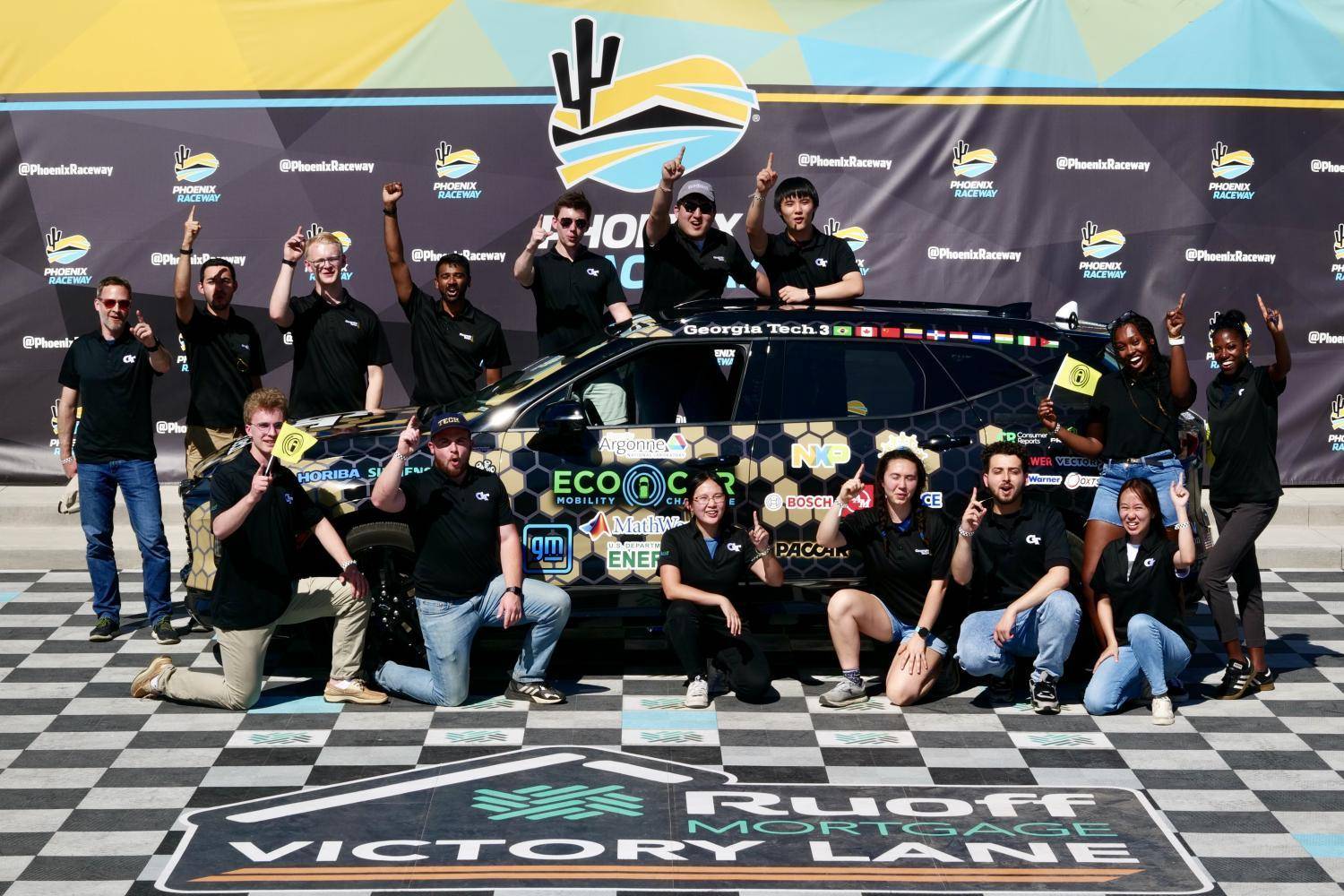Interdisciplinary team bests 10 other universities, transforming a 2019 Chevy Blazer into connected, hybrid vehicle
A team of Georgia Tech students and faculty members has won the U.S. Department of Energy’s (DOE) EcoCAR Mobility Challenge. The four-year competition tasked 11 universities with transforming a 2019 Chevrolet Blazer by adding advanced propulsion systems and automated vehicle technology. The goal was to improve the car’s energy efficiency while balancing emissions, safety, and consumer acceptability factors.
Originally a six-cylinder, the Georgia Tech EcoCAR team converted its Blazer to a four-cylinder hybrid vehicle with adaptive cruise control. Its vehicle-to-infrastructure communication technology allows it to “talk” to stoplights and adjust its speed for optimization.
The team of approximately 60 graduate and undergraduate students represent six of the College of Engineering’s eight schools. The group also includes students from the College of Computing, Scheller College of Business, and Georgia State University.
The team finished ninth last year after consistently placing in the top five in previous events.
“I really think that ignited something in us. We wanted to end this competition on a high, and I am so glad we did it,” said Nishan Nekoo, Georgia Tech’s engineering manager, a mechanical engineering master’s degree recipient, and winner of the competition’s Excellence in Leadership Award. “It really took a special effort from the entire team, especially a number of individuals who have shown an incredible amount of dedication, leadership, and aptitude to get us here. When I joined the team five years ago, I never thought this would be possible. It hasn’t completely sunk in yet.”
(text and background only visible when logged in)
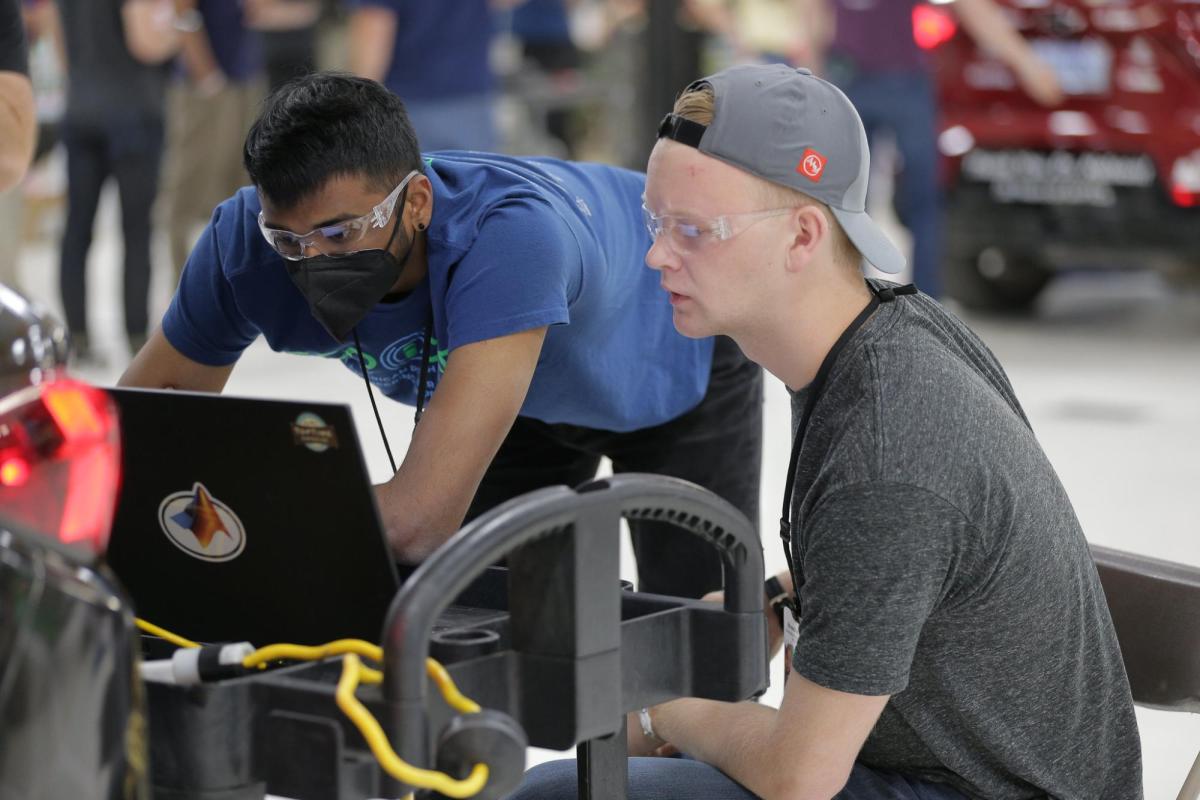
Nishan Nekoo and Braeden Dickson test Georgia Tech's car in Arizona.
The EcoCAR team is a $1 million research program housed under Georgia Tech’s Vertically Integrated Projects (VIP) Program. VIP allows undergraduate and grad students to participate in ambitious, long-term, multidisciplinary project teams that are led by faculty.
Some EcoCAR students, including Nekoo, spent their entire Georgia Tech careers working on the vehicle. The team is advised by professors Tom Fuller (ChBE - School of Chemical and Biomolecular Engineering), Michael Leamy (George W. Woodruff School of Mechanical Engineering), and David Taylor (ECE - School of Electrical and Computer Engineering).
“Winning this challenge is deeply gratifying for our students. All the credit goes to them for their hard work and determination,” said Leamy, who helped the students with propulsion systems integration as the mechanical engineering advisor. “The EcoCAR Challenge is an incredible program for training engineering leaders of the future. It has allowed our students to work directly with and learn from engineers and program managers from General Motors, the Department of Energy, the MathWorks, and many other automotive manufacturers and suppliers.”
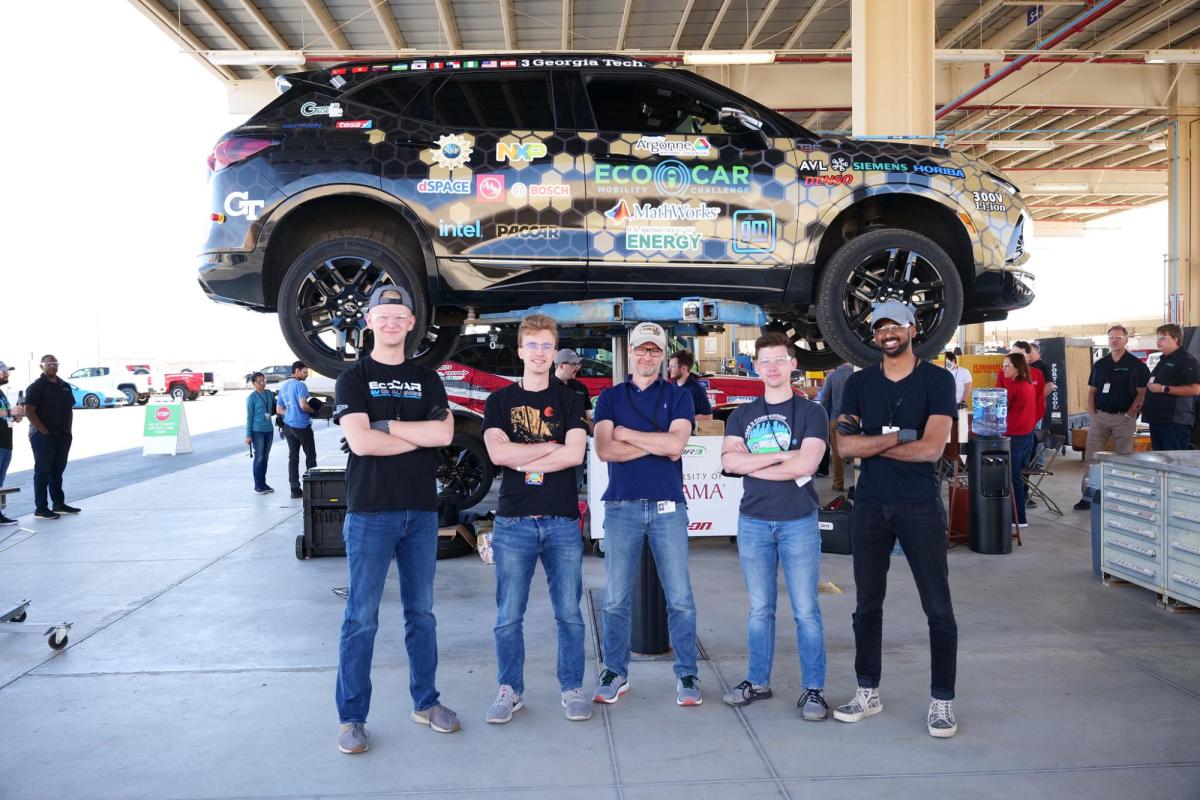
Left to right: Braeden Dickson (ECE), Eric Gustafson (Woodruff School), Ed Argalas (General Motors mentor), Nick Hummel (ECE), and Nishan Nekoo (Woodruff School)
In the first year of the program, 2018, the team created designs for the Blazer, which arrived at the Student Competition Center in 2019. Students then went to work, ripping out much of the vehicle’s systems. In their place were multiple computers and algorithms. Years three and four meant fine-tuning the hybrid propulsion system, making the vehicle consumer-acceptable, and improving its fuel economy. Along the way, they had weekly mentor meetings with Ed Argalas, an autonomous vehicle and advanced driver assistance systems engineer at General Motors (GM).
The team spent the last two weeks in Arizona for the final competition. The first segment at GM’s Yuma Proving Grounds consisted of static and dynamic tests. Then the 11 universities drove their respective vehicles 173 miles to Phoenix along desert highways for final presentations.
“Although we had tested the vehicle for more than 3,000 miles before that drive, we had never tested in an environment with such high temperatures,” said Nick Hummel, who led the team’s automation development efforts and rode in the car from Yuma a week after receiving his master’s degree in ECE. “In fact, the ambient temperature (nearly 100 degrees) began to approach some of the operating limits of our components, and we saw the highest internal temperatures (118 degrees) the system had ever experienced. It was an odd mixture of stress and fun.”
Georgia Tech finished first in several categories including:
- Energy Consumption (Normal Driving Mode)
- Energy Consumption (Adaptive Cruise Control Enabled)
- Connected Mobility Challenge
- Connected and Automated Vehicle Systems Presentation
The team won approximately $30,000 in the competition, which was managed by DOE’s Argonne National Laboratory and sponsored by DOE, GM, and MathWorks. The money will be used as students and faculty prepare for the next DOE-sponsored Advanced Vehicle Technology Competition. This time, they’ll transform a 2023 Cadillac LYRIQ and compete against 14 other universities in the EcoCAR Electric Vehicle Challenge.
"During the presentations, I was able to hear the types of questions our team was asked and the feedback provided. That experience will be invaluable as we prepare for the EV Challenge," said Michelle Warren, an electrical engineering Ph.D. student on the team. "For instance, we must make sure to document the demographics of participants when crowdsourcing user insights. Diversity, equity, and inclusion are major facets of our team, as well as what we will produce for consumers."
“The students who participated in the EcoCAR Mobility Challenge are tomorrow’s automotive innovators and will be the foundation of future engineering and manufacturing success in the United States,” said Kelly Speakes-Backman, principal deputy assistant secretary for DOE’s Office of Energy Efficiency and Renewable Energy. “Student competitions like EcoCAR are vital to developing a highly skilled workforce that will design and build clean mobility solutions to benefit all Americans.”
(text and background only visible when logged in)
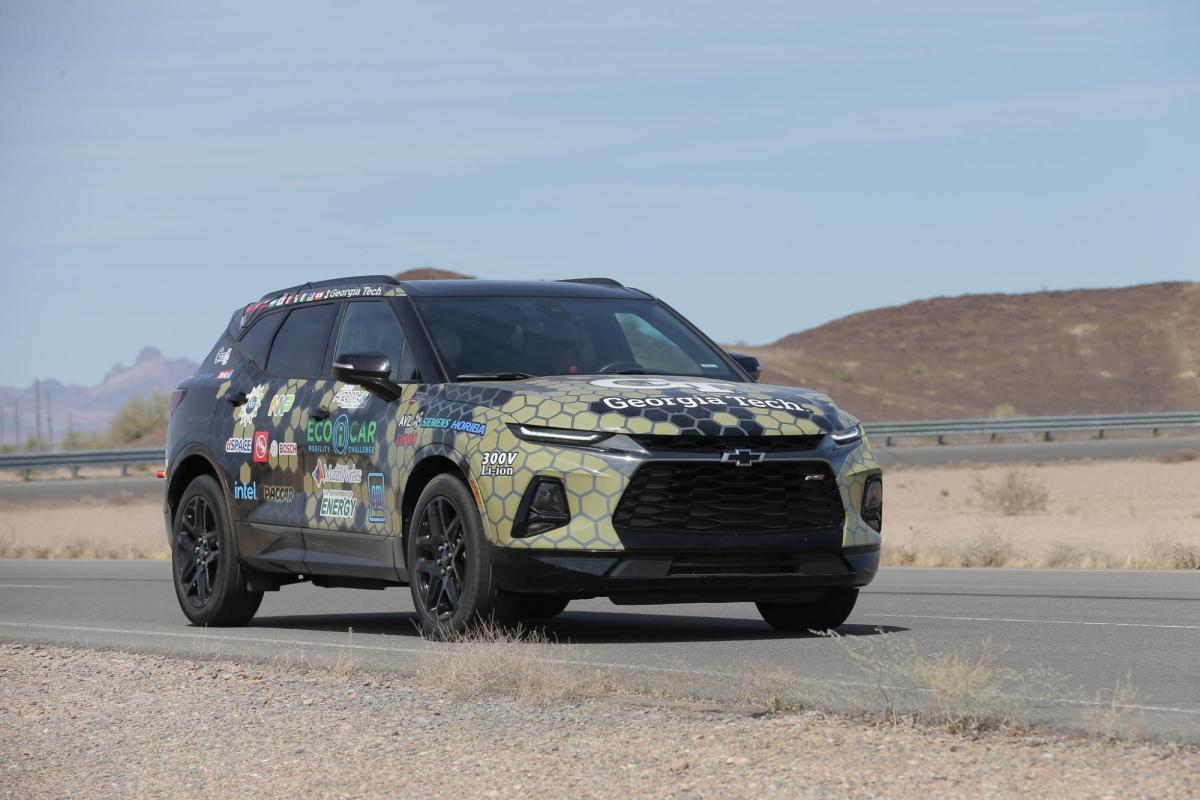
Teams drove 173 miles through the desert in hot temperatures.
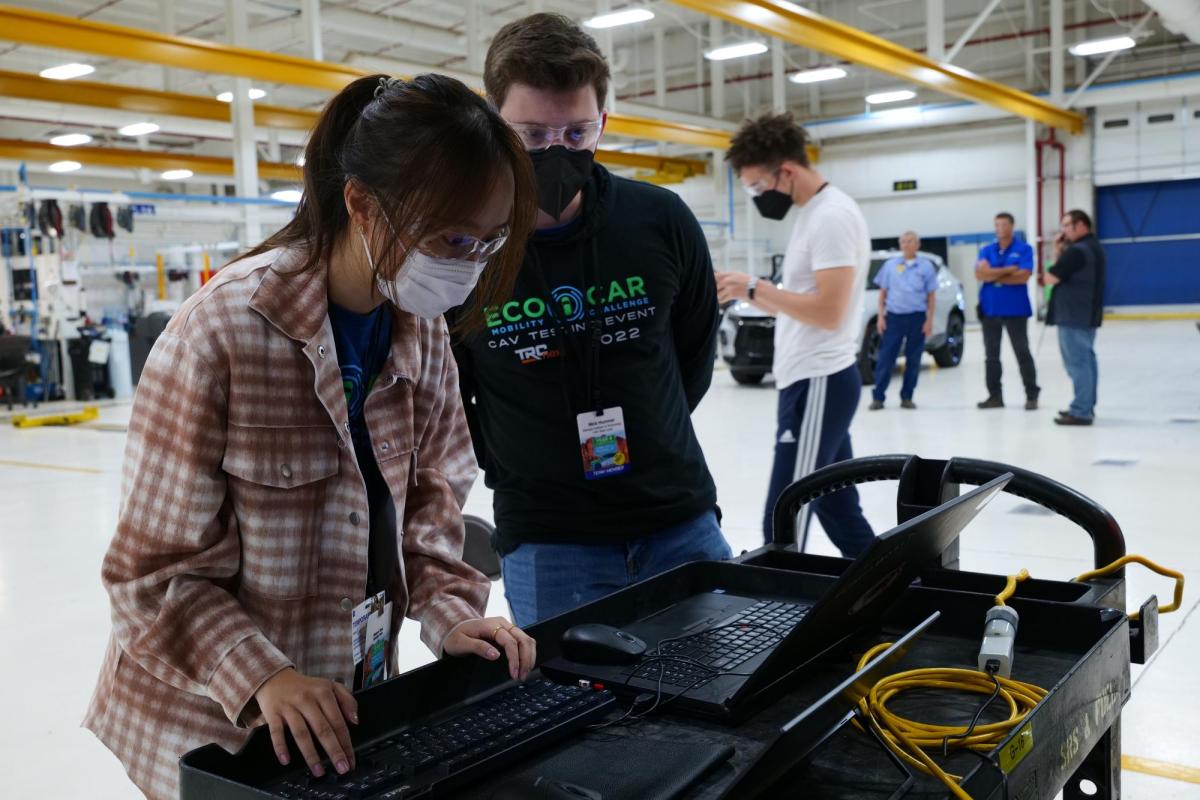
Joyce Zhao and Nick Hummel work on the car's connected and autonomous vehicle algorithms.
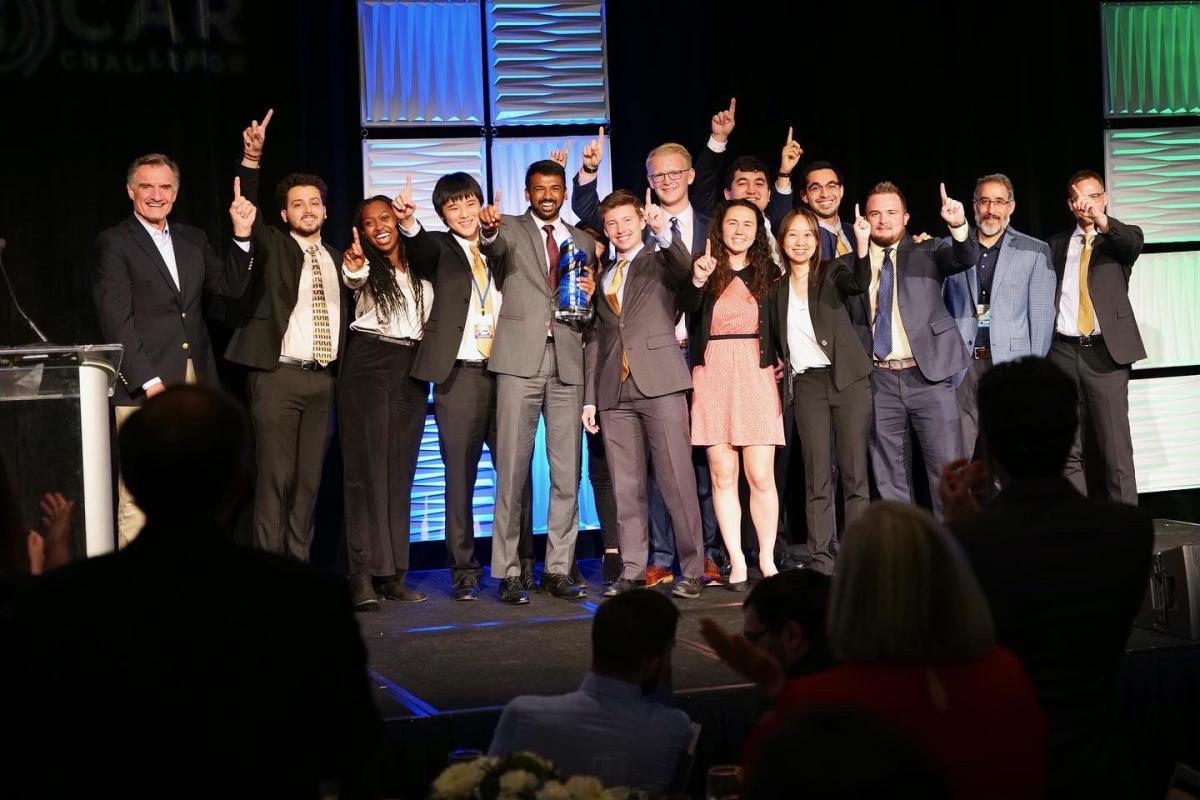
This is the first time Georgia Tech has won an Advanced Vehicle Technology Competition.
(text and background only visible when logged in)
Related News
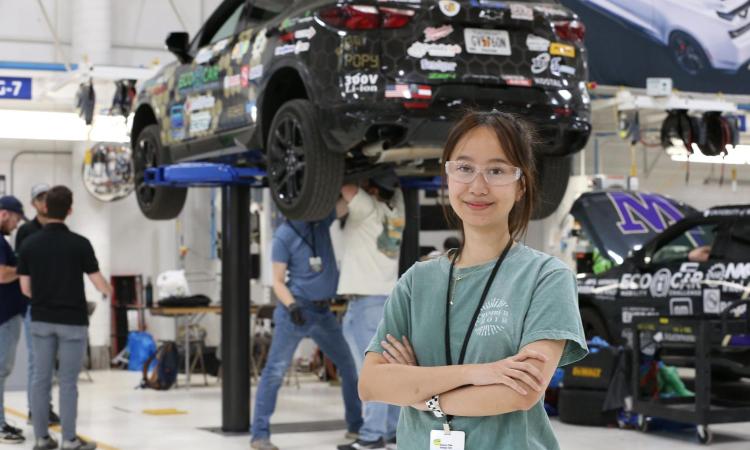
ECE Plays Key Role in EcoCAR Win
Multiple members of the School of Electrical and Computer Engineering contributed to the four-year project.
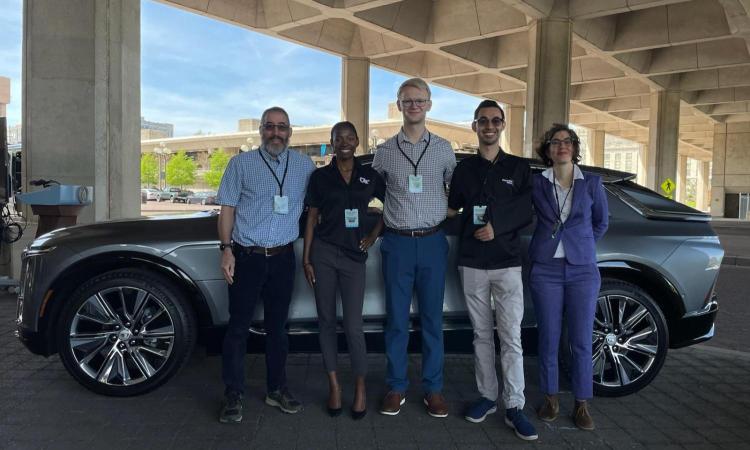
Georgia Tech Chosen for EcoCAR EV Challenge
The four-year competition will challenge students to engineer a next-generation battery electric vehicle that deploys connected and autonomous vehicle (CAV) features to implement energy efficient and customer-pleasing features, while meeting the decarbonization needs of the automotive industry.
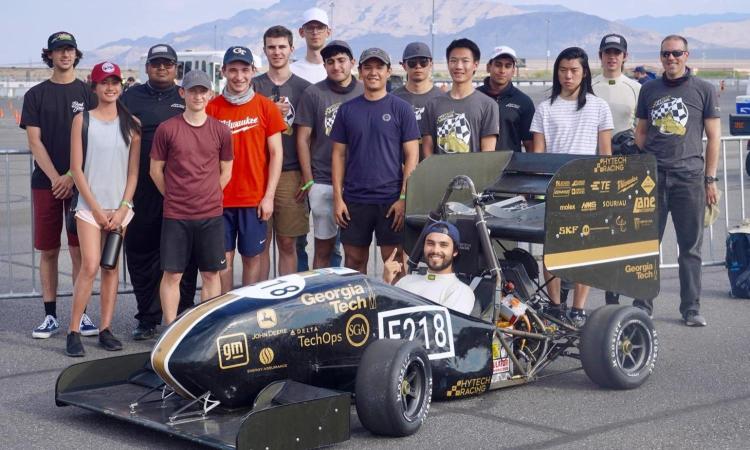
HyTech Racing Earns Second Against Intense Competition and Heat
Georgia Tech’s student-led electric racing team won the second-place trophy at the 2021 Formula SAE Nevada Competition, which challenged teams to engineer the best performing electric, formula-style race car.
